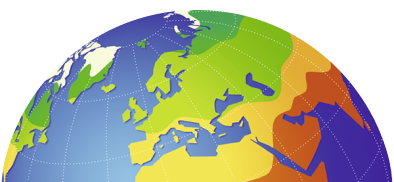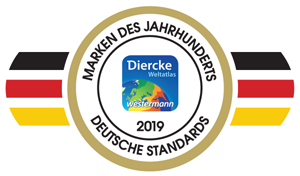Institutions of the European Union
European Union
978-3-14-100890-6 | Page 66 | Ill. 1

Overview
Unlike the United Nations (UN), the European Union is not an international organisation but a union of sovereign states. Its three pillars are the European Community, a Common Foreign and Security Policy (CFSP) and Police and Judicial Cooperation in Criminal Matters (PJCC).
Council of Ministers
One of the most important organs of the EU is the Council of Ministers, which acts as a decision-making body in EU matters and sets the guidelines for Community policy. It is composed of the heads of state or government of the Member States. The voting rights of national representatives are assessed proportionally on the basis of relative population size.
European Parliament
The European Parliament, whose members are directly elected by voters in the Member States, performs oversight and advisory functions. It also shares legislative responsibilities with the Council. Important international agreements, the admission of new EU Member States and the EU budget must be approved by the Parliament. The European Parliament does not exercise all of the powers which normally accrue to a national parliament, as it can neither initiate legislation nor form governments.
European Court of Justice
The European Court of Justice adjudicates all disputes relating to Community law. Its decisions take precedence over national laws. The European Court of Auditors overseas the collection and expenditure of EU funds.
European Commission
The European Commission is the executive organ of the EU. It executes the resolutions of the Council and supervises compliance with the applicable treaties. Commissioners are appointed by the Member States for five-year terms.
Political goals
The general political goals of the European states are set by the European Council, which is not an organ of the EU but rather its highest political authority. It is composed of heads of state and government of the 27 Member States and meets at least twice per year. The Council has authority over the Council of Ministers. In addition to the heads of state and government, the President of the European Commission is also a fully accredited member.




